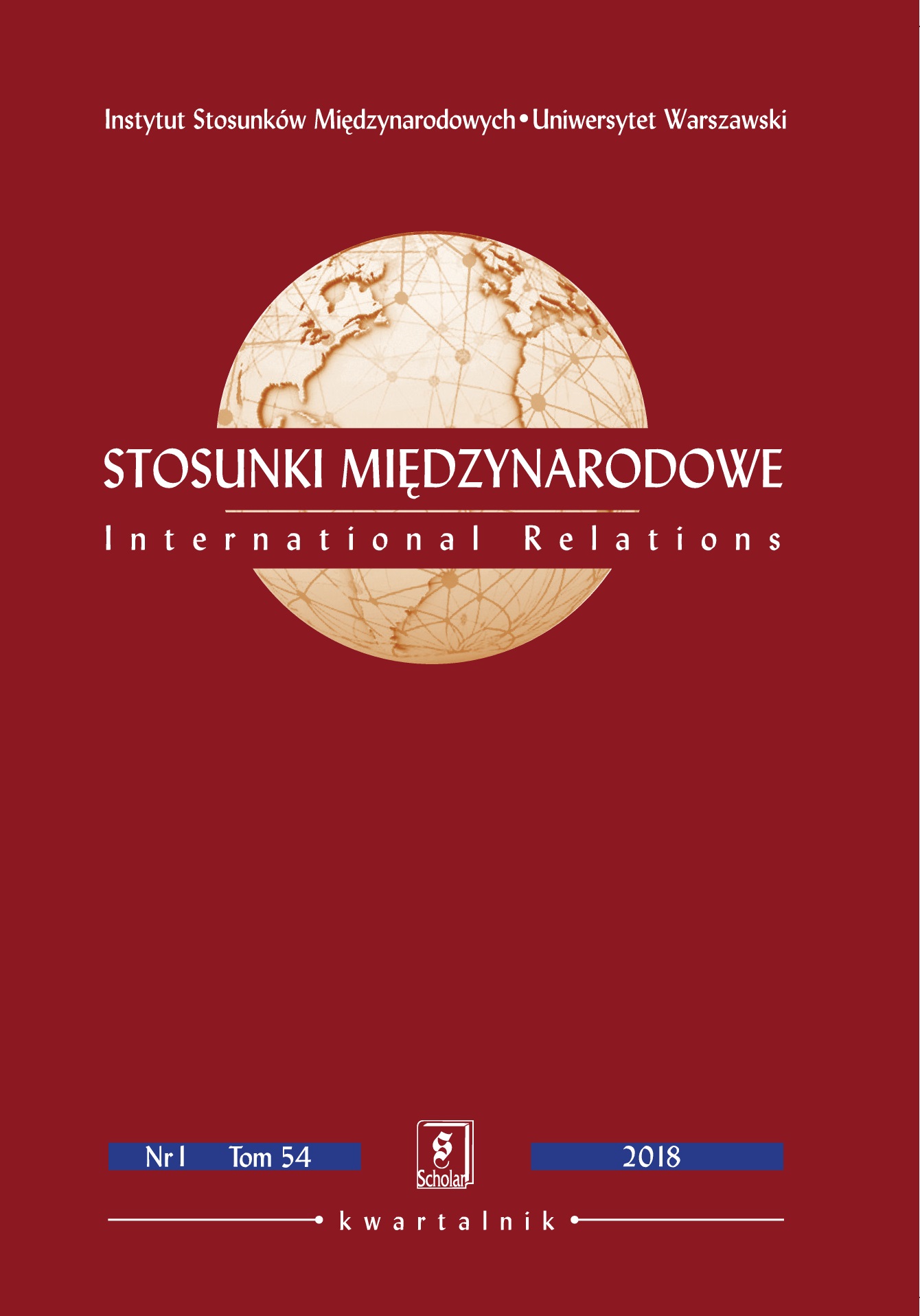Nauka o stosunkach międzynarodowych w koncepcji Ludwika Ehrlicha
The International Relations as Construed by Ludwik Ehrlich
Author(s): Tomasz PugacewiczSubject(s): Politics, Economy, Political Theory, Sociology, Political history, Social history
Published by: Wydawnictwo Naukowe Scholar Sp. z o.o.
Keywords: International Relations (IR); history of science; sociology of knowledge; IR theories; Ludwik Ehrlich
Summary/Abstract: The article aims to address the following questions: how did L. Ehrlich perceive the study of international relations, and, if he embraced a specific theory of international relations in his investigative approach, which theory actually was it? In line with the so-called contextual approach, developed within the framework of the studies on the history of ideas, assuming that respective academic investigators should effectively reflect in their research the times in which they actually live, the two hypotheses were put forward, i.e. (1) Ehrlich construed the International Relations as an interdisciplinary area of knowledge, and (2) followed the theories being developed in his own time, i.e. liberal internationalism and classical realism. The first part of the text focuses on Ehrlich’s biography in terms of how he actually related himself to the above-referenced area of knowledge. Then his concept of the International Relations is discussed. The Author adopted a case study research strategy, as well as applied the qualitative analysis method in approaching all textual material. The first part of the paper made use of available scientific studies, while the Ehrlich’s monograph entitled Introduction to the International Relations (1947) was mined for the second part. In the conclusions section the first hypothesis was upheld, as Prof. Ehrlich’s reflections on the interdisciplinary character of the International Relations are actually a part of the dominant perspective embraced in the interwar period. At the same time, the second hypothesis failed to be confirmed, as Ehrlich never in fact put forward a clear and coherent theory of international relations. Instead of following the dominant theoretical positions of his own time, his thought is found to incorporate the components of a diversity of concepts, including not only the two theories typical of that time but also the theory of international society. In view of the fact that some of those ideas appear to be a decade and more ahead of the times when Ehrlich drafted his own works, his entire research must be assessed in terms of the extent to which such innovative thinking was actually espoused by him at the time.
Journal: Stosunki Międzynarodowe
- Issue Year: 54/2018
- Issue No: 1
- Page Range: 231-266
- Page Count: 36
- Language: Polish

